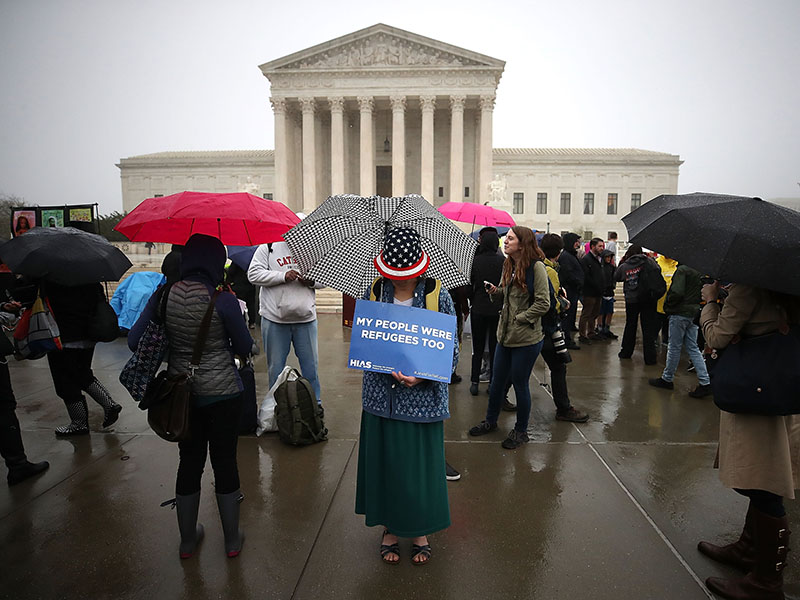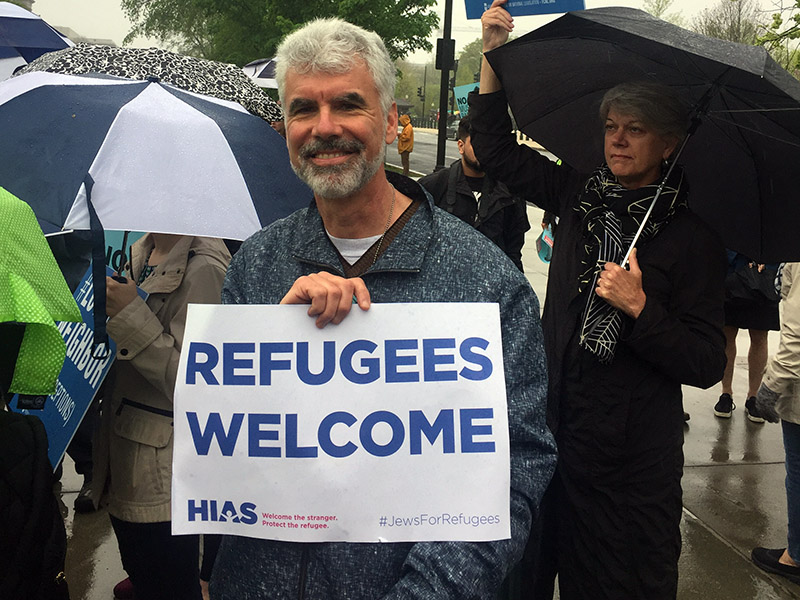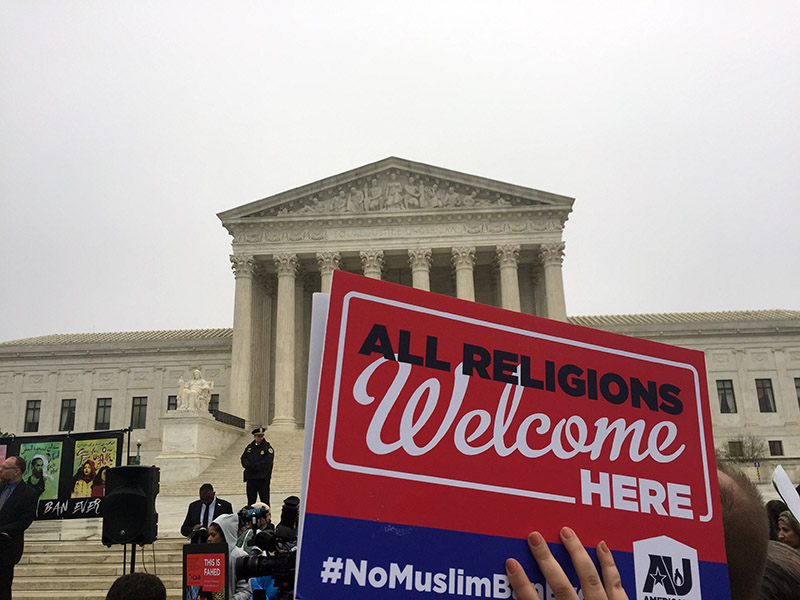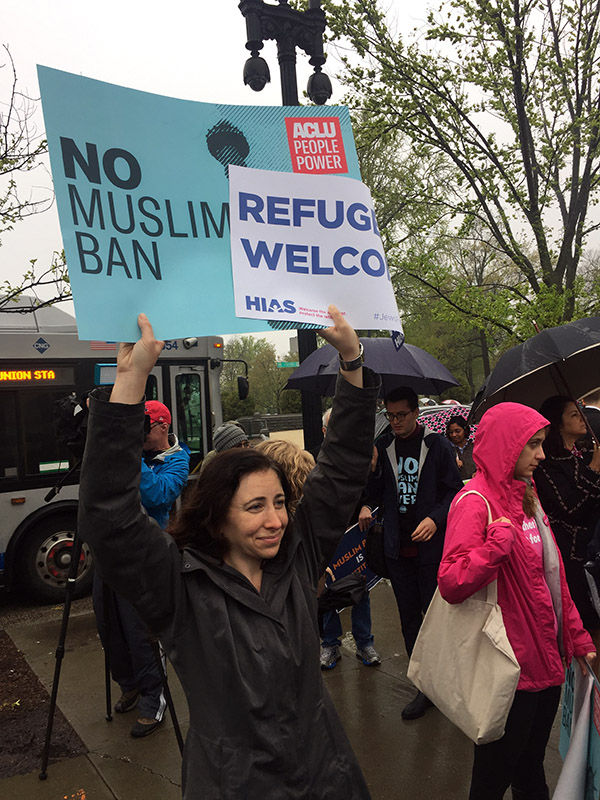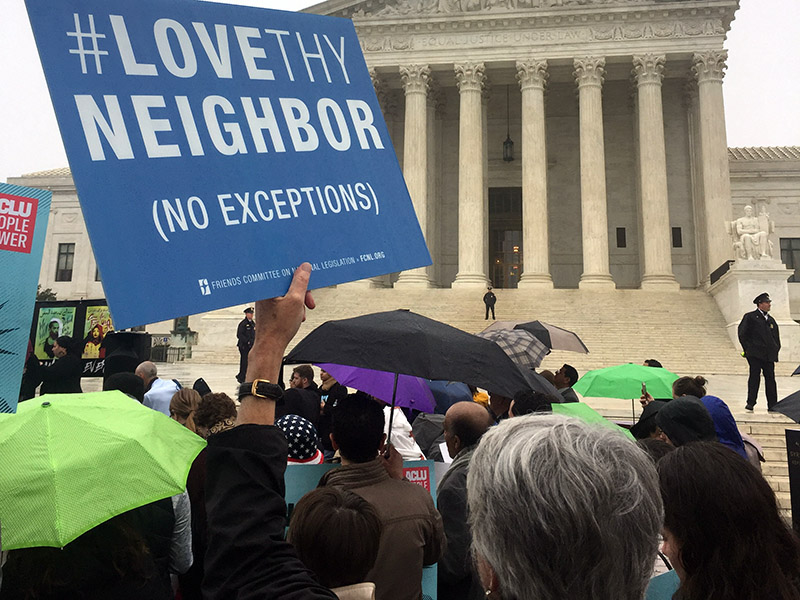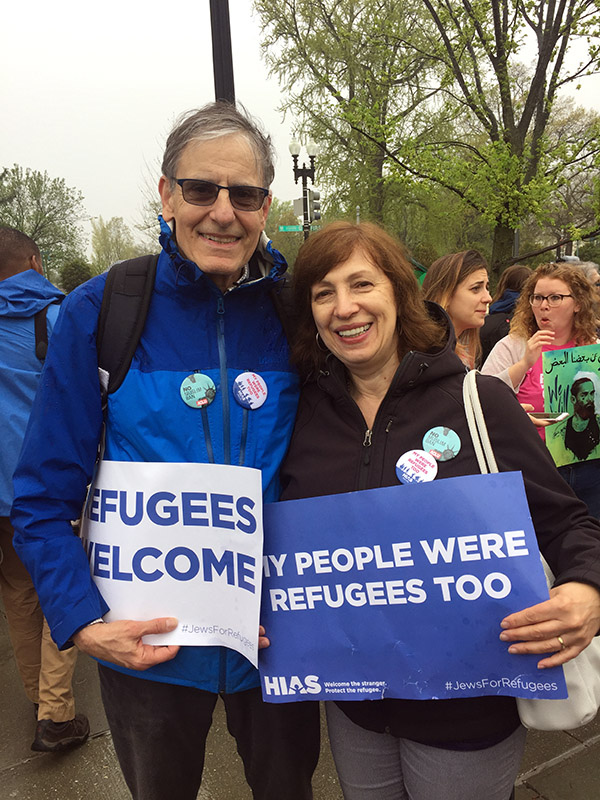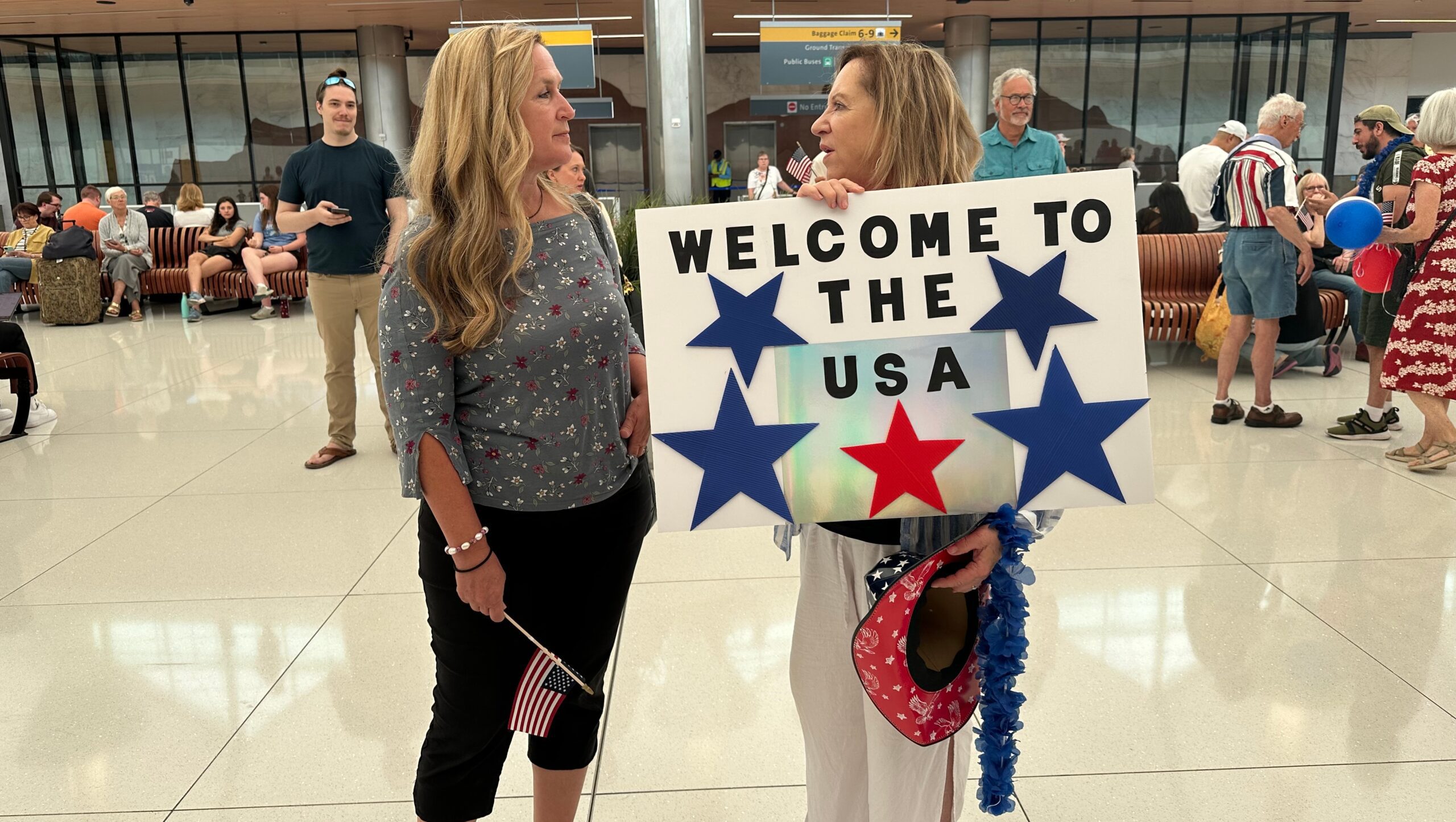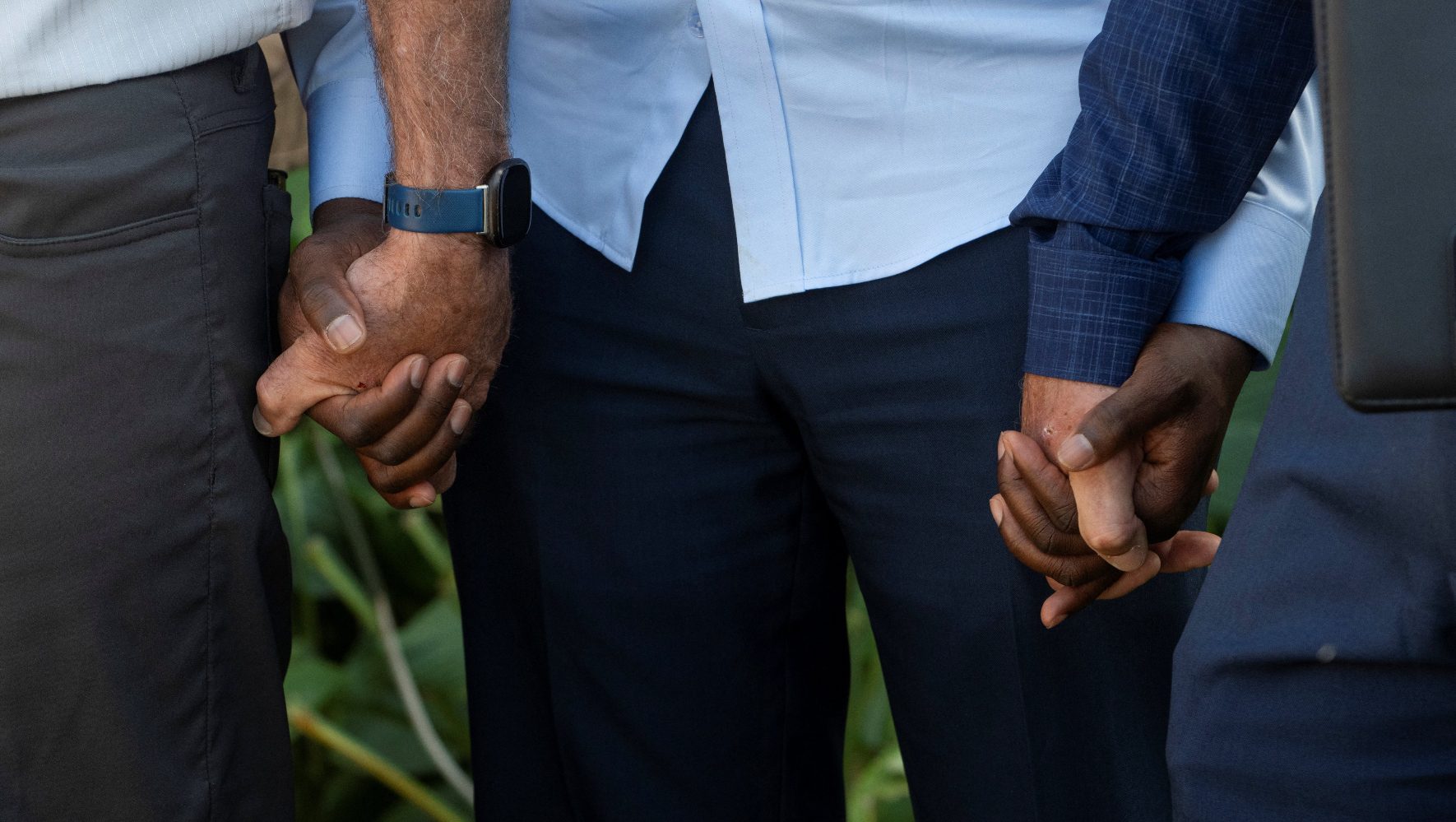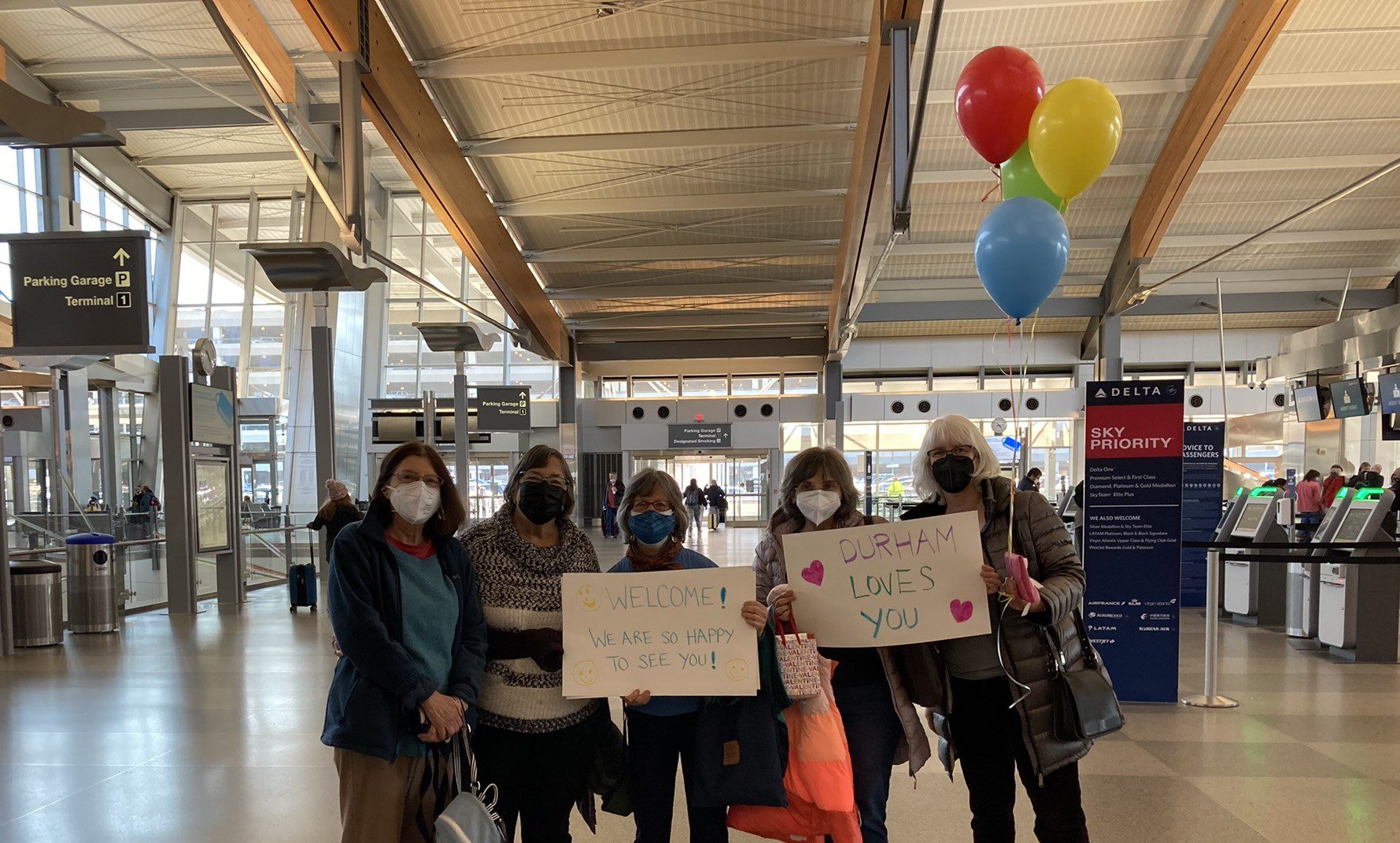Outside the Supreme Court, Activists Say #NoMuslimBanEver
By Joshua Kurtz, Guest Contributor
Apr 25, 2018
On Wednesday, April 25, the Supreme Court heard arguments in Trump v. Hawaii to determine whether or not President Trump’s travel ban, which restricts travel from predominantly Muslim-majority countries, violates federal law and the U.S. Constitution.
You can listen to an audio recording of the arguments by clicking here, or read the transcript by clicking here.
At the same time, outside the Supreme Court, dozens of American Jews gathered with HIAS, partner organizations, and members of the Muslim-American community to protest the ban.
#NoMuslimBanEver pic.twitter.com/xD87YsAr1I
— National Immigration Law Center (@NILC_org) April 25, 2018
Naomi Steinberg, HIAS’ Senior Director of Policy and Advocacy, addressed the crowd, who stood together for hours in the rain to voice public opposition to the policies being argued over inside the courtroom.
“We know that American Jews would not be here were it not for this country’s willingness to accept refugees of all faiths,” Steinberg said.
“So we will be here with you. We will continue to stand up, to speak out, to fight.”
In addition, Rabbi Jason Kimelman-Block, the Director of Bend the Arc Jewish Action, and David Inoue, the Executive Director of the Japanese American Citizens League, spoke about the Jewish and Japanese communities’ history of persecution, and the responsibility to stand in solidarity with those threatened by the Trump Administration’s policies.
“It is the duty of the court,” Inoue commented, “to make sure that the law does not fall silent.”
@HIASrefugees Steinberg "these policies belong in the trash bin of history" draws applause "we will continue to condemn the discriminatory policies targeting refugees" pic.twitter.com/NEzXWai2hE
— Amber Khan (@amber_khan) April 25, 2018
Representatives Judy Chu (D-CA), Pramila Jayapal (D-WA) and Andre Carson (D-IN) also asserted their opposition to President Trump’s Muslim ban and spoke about their efforts in congress to protect immigrants.
“Three times Donald Trump has tried to force this unconstitutional ban on us. And three times we have stood up to stop it,” Representative Jayapal remarked.
The first version of the ban, which was signed only days after President Trump took office, was blocked by lower courts. The second, which the Supreme Court allowed to go partially into effect, expired in September 2017.
In late September, President Trump announced the third iteration of the ban, which again restricts the entry into the United States for nationals of a specific list of mostly Muslim-majority countries. And just like the first two, the third executive order faces mounting challenges.
This week, dozens of former intelligence experts called on the Supreme Court to strike down the ban. Michael Hayden, the former Director General of the CIA, notes that the ban is incompatible with American values and weakens America’s national security.
"We assimilate immigrants, we know how to do it,” Hayden argues, “and here is a proclamation that just seems to fly in the face of the essence of American-ness."
While HIAS is not a party to the case that was heard before the Supreme Court, the organization joined an amicus brief filed by the parties of IRAP, HIAS, et al v. Trump, another lawsuit challenging the Trump Administration’s refugee and Muslim bans.
Since the inauguration, HIAS has opposed the ban both in the courts and in the streets. And on the anniversary of President Trump’s first executive order, dozens of activists joined HIAS and our interfaith partners outside the White House to protest the administration’s ongoing attacks on the United States’ refugee and immigration programs.
“From the airport protests in January 2017 to the steps of the Supreme Court this morning, Americans have made clear that wholesale bans on entire religions or nationalities fundamentally betray what the United States stands for,” said HIAS President and CEO Mark Hetfield.
Beyond the travel ban, the administration has left tens of thousands of vulnerable refugees—disproportionately Muslims—stranded in dangerous situations, unable to find safety on our shores or reunite with family members.
The number of Muslim refugees admitted to the United States so far this year is down 90 percent from the prior federal fiscal year, from over 19,000 to approximately 1,900. Although admissions of refugees of all faiths have dropped significantly, the relative proportion of Muslim refugees has dropped even more.
At this point in fiscal years 2016 and 2017, Muslim refugees comprised 44% and 46% of total refugee admissions, respectively. As of April 24 during the current fiscal year, however, Muslim refugees represent just 16% of total admissions.
The Supreme Court is expected to announce its decision on the Hawaii case in June, but no matter which way the justices come down, the president will still ultimately have broad discretion over the United States Refugee Admissions program.
“Refugees will ask, ‘What did we do?’ We have to explain, ‘You didn’t do anything. We’re the ones who have changed, our country has changed and we’re not offer protection the way we used to,’” Melanie Nezer, HIAS’ senior vice president of public affairs, told VICE News.
Joshua Kurtz is a Community Organizer and Avodah Corps Member at HIAS. To learn more about HIAS’ work advocating for America’s tradition of welcome, follow us on Facebook, Twitter and Instagram.


